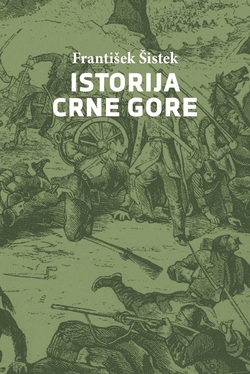A History of Montenegro
 Year of publication:
2022
Year of publication:
2022
 Publisher:
Matica crnogorska
Publisher:
Matica crnogorska
 ISBN:
978-9940-39-039-6
ISBN:
978-9940-39-039-6

The book represents the most complete, extensive and up-to-date overview of Montenegrin history available in one volume in any language. Translated from Czech by Adin Ljuca, the Montenegrin edition published by Matica crnogorska under the title Istorija Crne Gore (A History of Montenegro) was substantially revised and updated by the author. On more than 800 pages, the monograph follows the history of Montenegro from earliest human traces until the entry of Montenegro into NATO in 2017. The territory of present-day Montenegro, a small Balkan and Mediterranean land, has traditionally found itself at the proverbial crossroads of empires, civilizations, cultural and religious influences (Christian Orthodox, Muslim, Roman Catholic and Jewish). After introductory chapters on antiquity and its lasting heritage, the settlement of the Slavic tribes and the question of ethnogenesis, the author analyzes the rise and fall of the medieval states of Duklja, Zeta and Montenegro under the rule of the Vojislavljević, Nemanjić, Balšić and Crnojević dynasties. He pays special attention to the structure of the Montenegrin tribal and patriarchal society under the Ottoman Empire, the process of Islamization and the formation of modern Montenegrin statehood from the 17th until the 19th century under the Petrović Njegoš dynasty. The book further discusses the “golden period“ of independent Montenegrin monarchy under King Nikola (1860-1918), the unification of Montenegro with Serbia and the new Yugoslav state after the First World War, the successive fascist and Nazi occupations, collaboration and resistance during the Second World War (1941-45) and the post-war decades of Marshal Tito’s socialist Yugoslavia. It then recounts the crisis and violent break-up of the Yugoslav federation in the early 1990s, the time of war, sanctions and increasing independence of Montenegro from Serbia. The final part of the book is devoted to the referendum on independence (May 2006) and the first formative years of the new European state.


